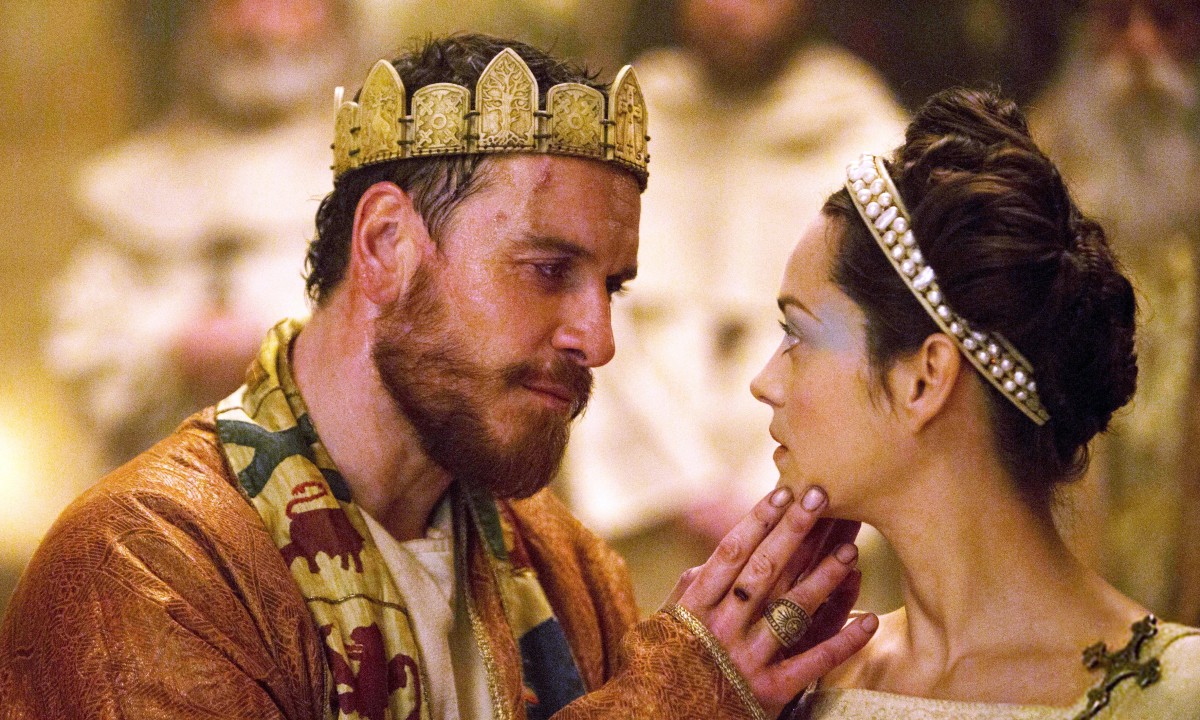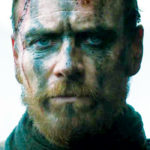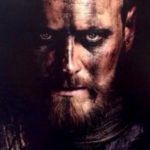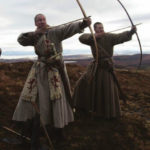Did you know Lady Macbeth had a dog? Why else would she exclaim, “Out, damned Spot!” Ah, but in this version she doesn’t even wash her hands, of which more anon.
The Fassbender/Kerzel take on Macbeth won much acclaim upon release. Take Manohla Dargis’s words from the New York Times, no less:
Kenneth Tynan once wrote that ‘nobody has ever succeeded as Macbeth’ because the character shrinks from a complex figure into a cowering thug. The exception, Tynan continued, immediately contradicting his claim, was Laurence Olivier, who in a 1955 production ‘shook hands with greatness.’
With his Macbeth, Mr. Fassbender, who routinely shakes hands with greatness in films that don’t remotely do the same, produces a man whose anguish eventually becomes a powerful counterpoint to his deeds, partly because he’s already dead by the time he utters his first word. Mr. Fassbender gives you a reason to see this Macbeth, although the writing isn’t bad, either.
I’d happily concur that Fassbender “shakes hands with greatness” in so many of his movies, though in this case I’d say the movie, a somewhat loose adaptation of the bard, “does not… do the same.” In fact, I almost fell asleep while watching, something that happens once in a blue moon chez Millward. That is a bit of a harsh judgement, so keep reading, and be reassured that I did watch at the second attempt watch the whole film through in order to provide you with a comprehensive review.
Weighing in at under 2 hours, this is bard lite – a lot of cuts which result in the Macbeth murders appearing rudely back to back and the sleepwalking scene vanishing entirely, from what I could tell. Subplots have been shorn and much of the background political shenanigans with it: a very stripped back Macbeth, reliant more on visuals for its context and with minimal chance to develop its characters.
For the most part, a very un-Shakesperian delivery has been adopted, which is not necessarily for the better; indeed, much of the dialogue is distinctly underplayed, mumbled and inhabited with some strange dialect crossbreeds that don’t sound as authentic as much of the film is clearly intended to be.
If I were being unkind, I might say this bleakly rendered retelling of Macbeth is half way towards Braveheart, thanks at least to the fierce vertical stripes painted in mud on faces and wobbly hand-held camera capturing warlords debating. The battle and clan scenes also reminded me of a bloodier cross between those bravely filmed by Orson Welles in Chimes at Midnight and the Japanese version, Kurosawa‘s Throne of Blood (if this had been filmed in colour I’m quite sure it would have included a blood-red sunset too.) The “weird sisters,” who are present at the battles, are just that – slightly weird in their prophecies, without even a shred of witching about them.
However, things perk up for some of the key speeches in the second half as Fassbender and Marion Cotillard as Lady M get into their stride and a more emotional experience takes over. For example, Cotillard’s tearful scene as she sees her dead child is beautifully played and a credit to her.
This is a film that looks ravishing at all times, such that the benefits of Blu-ray are readily apparent as you look at the shimmering snow-capped mountains and burning forest. We see every nuance in Fassbender’s expressive face as his ambitiously desperate (or desperately ambitious) monarch realises the full horror of his deeds – and indeed, in the face of Banquo’s ghost (the excellent Paddy Considine as Macbeth’s erstwhile bosom buddy) as he watches balefully in a foreshortened dinner scene.
There is no question that Fassbender is an actor of true quality, one destined to play great roles. It might be more reflective of his talent to see him play classic roles on stage before attempting them on the big screen, but he delivers Macbeth with intensity, tragedy and even the mirthless humour of a tortured soul. There can be little doubt he believes he is plummeting straight to hell, and nothing can change that fate.
By contrast, the decent Duncan is played by the decent David Thewlis (who even managed to make a Nazi Camp Commandant sound decent in The Boy With Striped Pyjamas), a king who plainly does not deserve to die. The murder is handled well, though I must admit that unlike the Polanski version, we do not see the dagger Macbeth apparently sees before him!
Ah yes, Polanski’s Macbeth – I had to mention it somewhere. The 2015 adaptation is much the less stagey, but in the same way lacks the poetic and metaphorical freedom. Justin Kerzel goes for a very literal depiction of the text, such that we can only assume Macbeth is suffering a mental illness and hallucinations rather than being structured in the format of a classic Greek tragedy.
For me, losing the literary device on which the play hangs is a major problem – and the principle reason why this is first and foremost a stage play and why translating it to the standards of historical period drama does not sit easily. It is the very lack of dramatic feel that makes this production less than the sum of its parts.
Paradoxically, this is probably why the film critics described it as “bold and fearless” – though losing the mores of context and balance mean it is something else entirely. The parallel with Braveheart may be more realistic than you believe.













